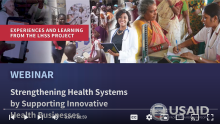Learning and knowledge sharing are fundamental to the LHSS Project. We invite you to search LHSS knowledge products and resources for the latest approaches, insights, and learning in the field of integrated health systems strengthening.
El Programa Comunidades Saludables de USAID (LHSS) ayuda a los países a conseguir sistemas sanitarios sostenibles y autofinanciados que ofrezcan una atención sanitaria de calidad para todos.
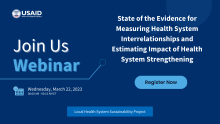
During this webinar, we use the HSS Evidence Gap Map to explore measurement tools and approaches that have been used to estimate impact of HSS interventions on health systems outcomes.
This document outlines LHSS’s strategy for supporting the strengthening and scale up of local capacity through country and core activities. Designed for use by LHSS staff and local partners, this strategy provides a framework and details on how to develop, implement, monitor, and evaluate sustainable health system strengthening activities. This strategy replaces the LHSS Scale Up of Local Capacity Strategy (2019).
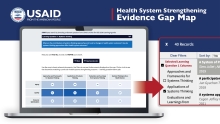
The Evidence Gap Map identifies existing literature examining the impact of health systems strengthening on health outcomes. Evidence is organized around USAID's Health System Strengthening Learning Agenda.
This two-pager focuses on USAID’s Learning Question 3, “What measurement tools, approaches, and data sources, from HSS or other fields, are most helpful in understanding interrelationships and interactions, and estimating impact of HSS interventions on health system outcomes and priority health outcomes?”
This two-pager focuses on USAID’s Learning Question 2, “What conditions or factors successfully facilitate the institutionalization and/or implementation at scale of good practices that improve health system outcomes, and why? What are lessons learned regarding planning for sustainability and achieving results at scale?”
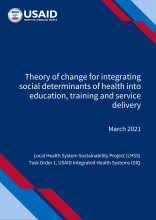
Given the complexity of the causes and effects of the SDoH and the multitude of stakeholders and interventions needed, this publication introduces the Theory of Change (ToC) that can help those seeking to develop interventions to address and mitigate the effect of the SDoH on health.
This Year 4 Quarter 1 Report (Oct-Dec 2022) was prepared for USAID and provides a progress update for all annual work plan activities.
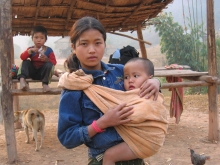
Routine stakeholder engagement is critical to fair and inclusive national priority setting for health, but many countries face challenges in reaching key groups. This blog shares promising practices for bringing in key stakeholders and making sure the loudest voices aren’t the only ones heard.
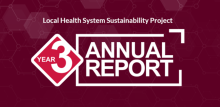
We are proud to share the LHSS Year 3 Annual Report which highlights the many achievements we celebrated with our country partners this year.
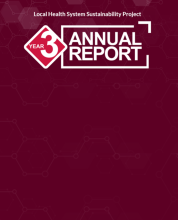
We are proud to share the LHSS Year 3 Annual Report which highlights the many achievements we celebrated with our country partners this year.
For countries wanting to strengthen health budget execution, learning about promising approaches used by others is one thing but putting them into practice is another. This blog reveals how two countries, Lao PDR and Peru, adapted promising practices and began to implement them.
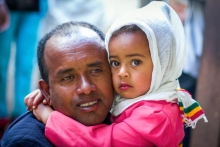
Ministries of health know that priority setting is important, but explicit priority-setting processes — processes that are inclusive, transparent, and informed by evidence — often are not institutionalized. This blog shares the promising practices being used in several countries.
This brief includes a set of suggested competencies developed in collaboration with a diverse group of stakeholders from around the world who identified them as essential for the health workforce.

